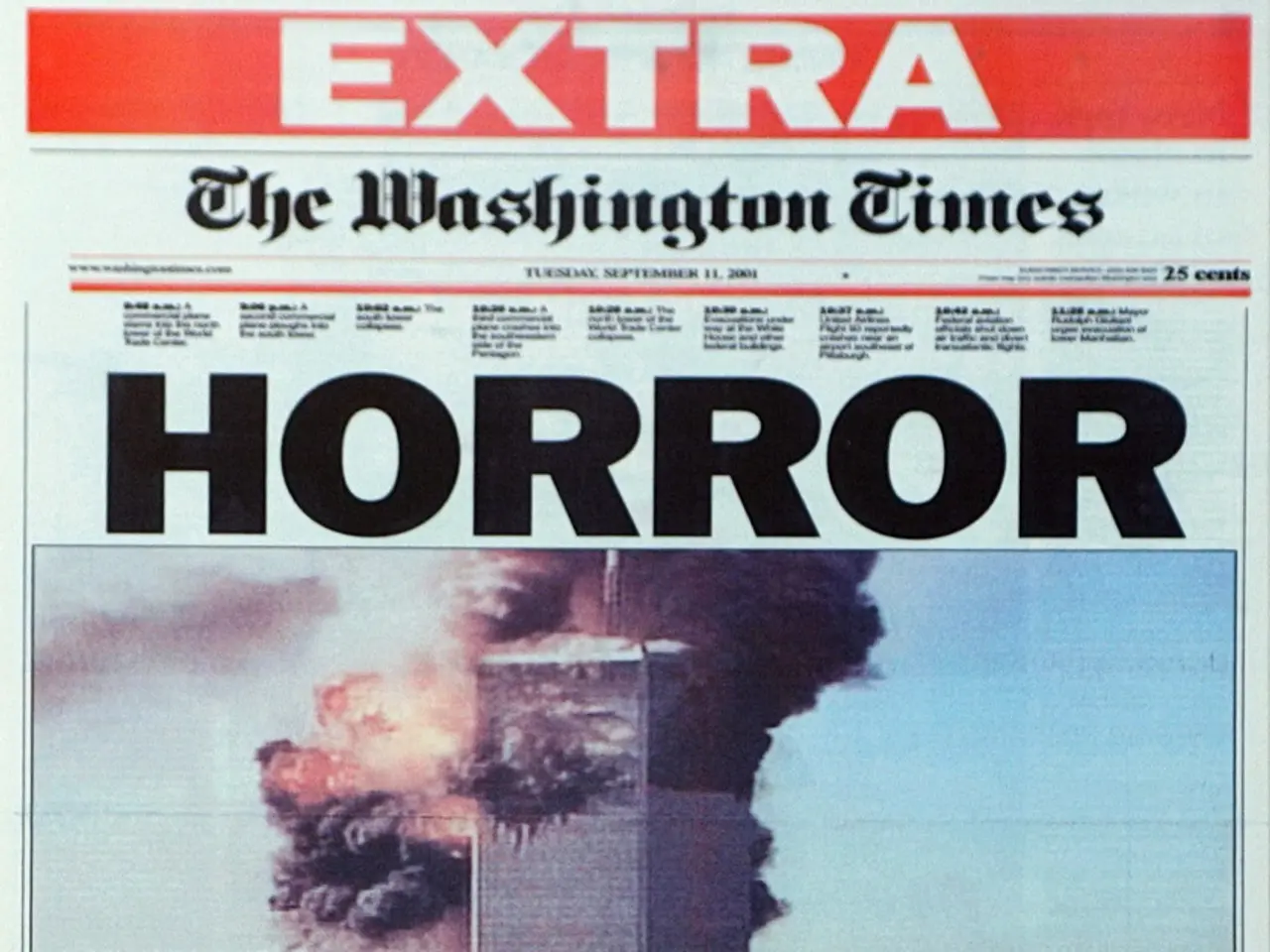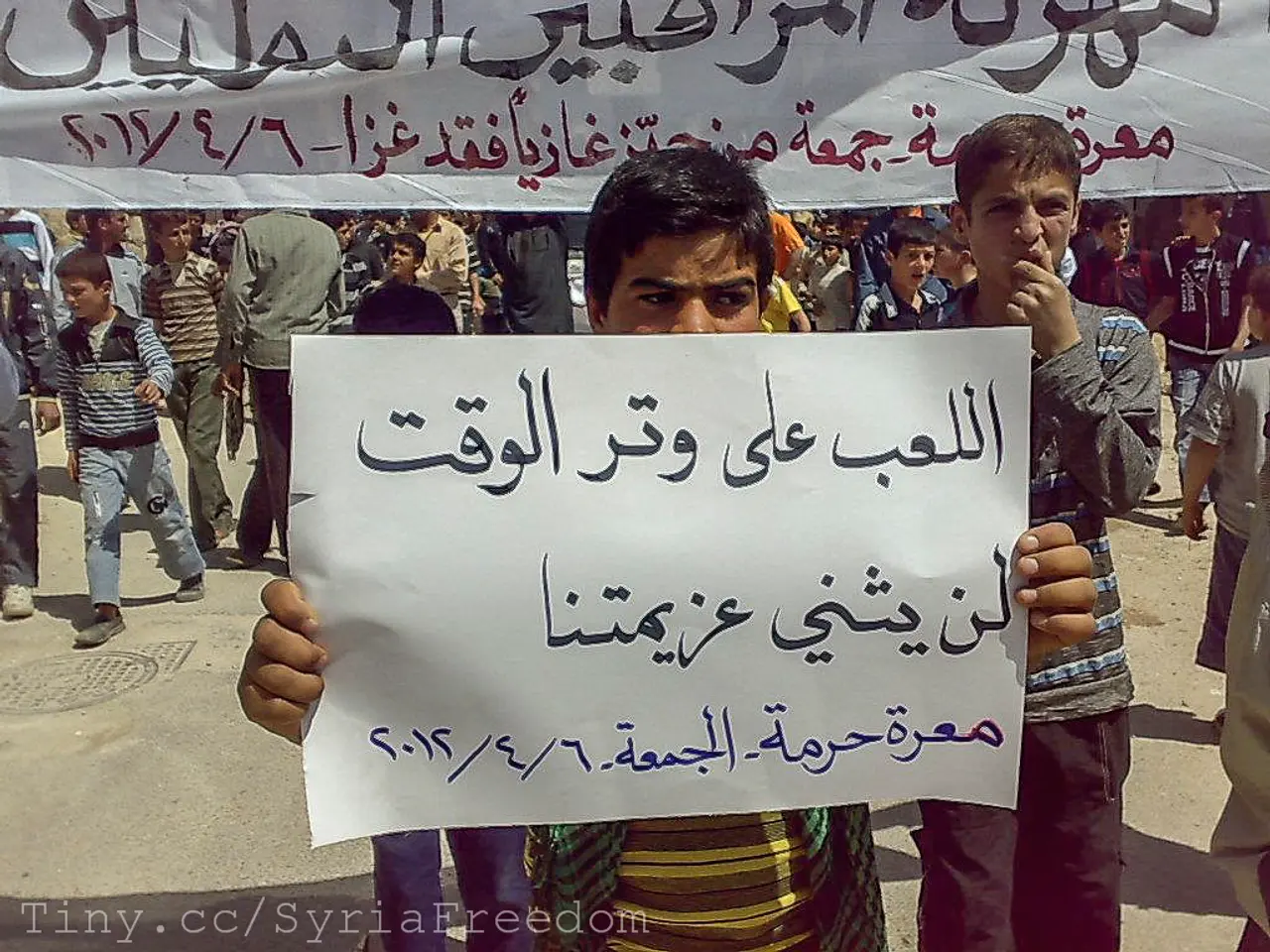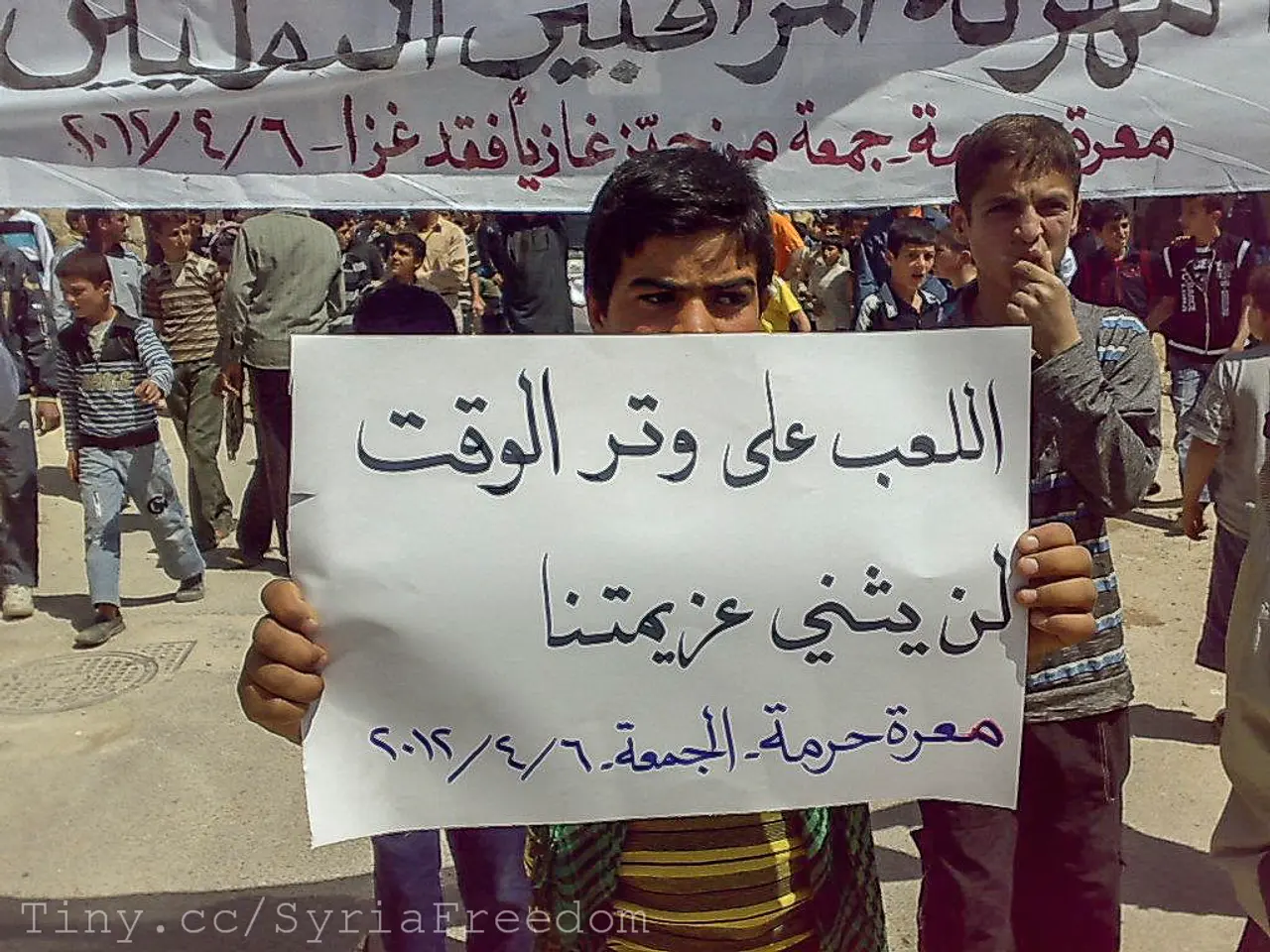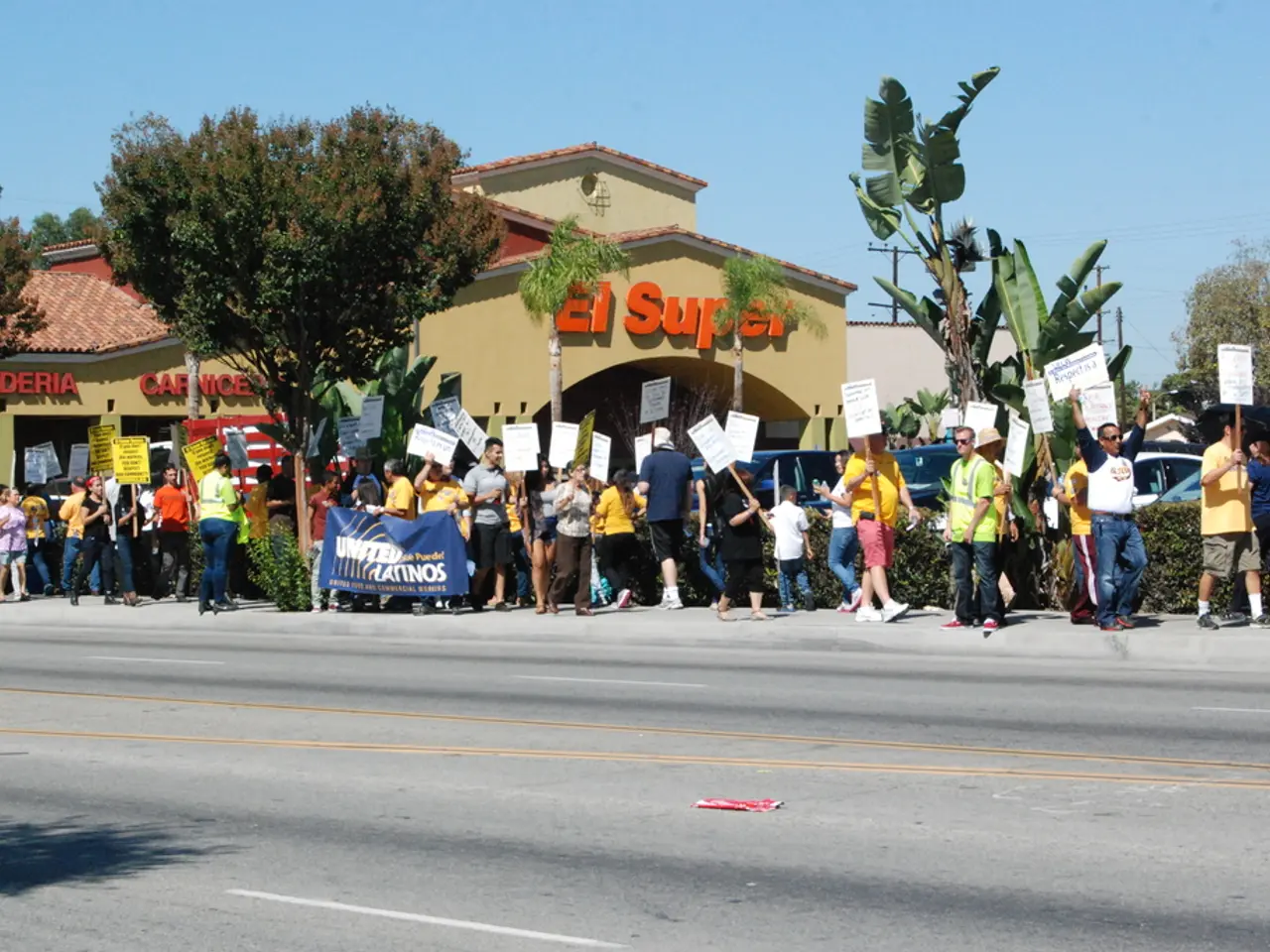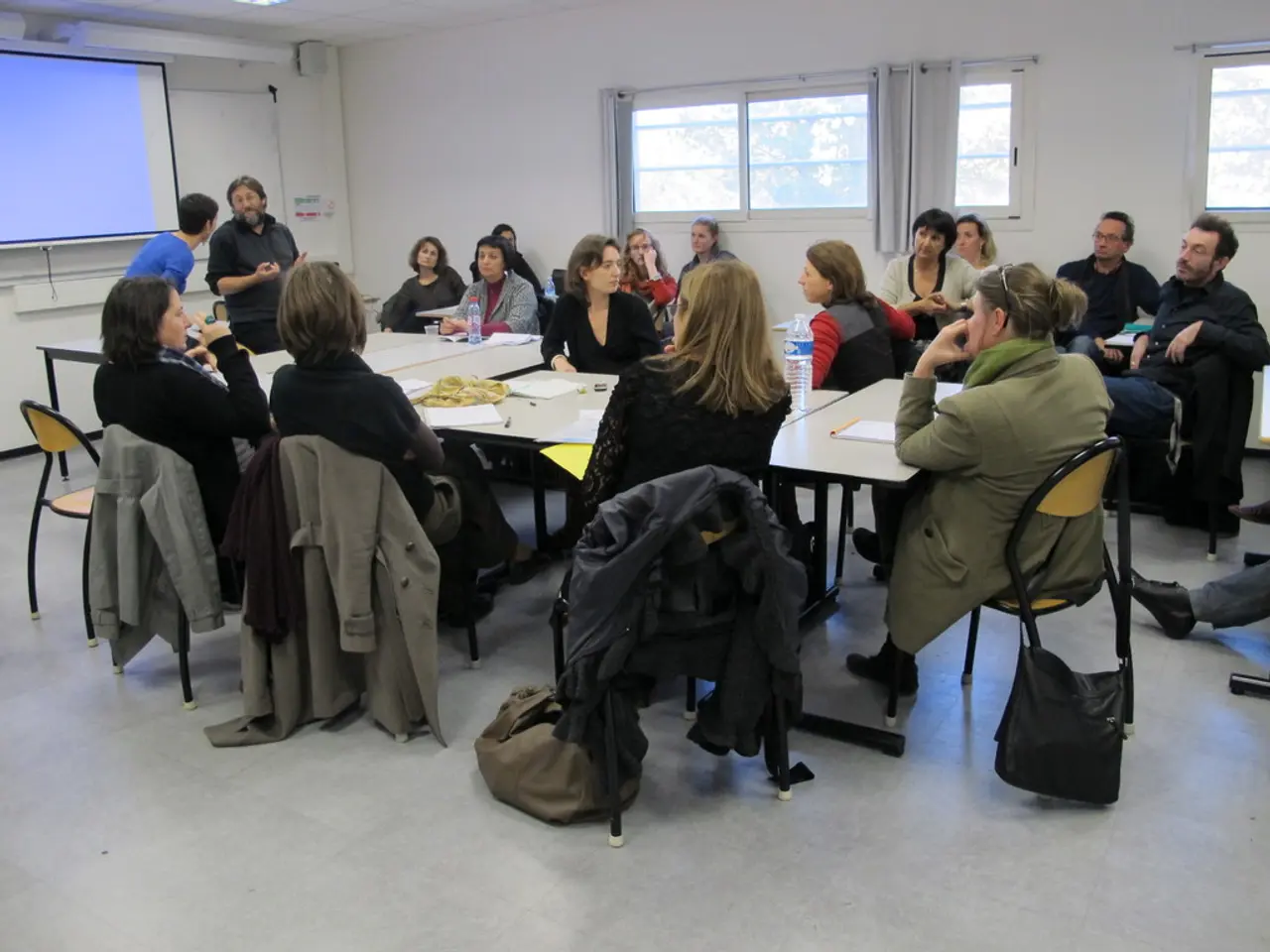Over 150 legal professionals concur about the circumstances in Gaza
In a divided legal analysis, French-speaking academics specializing in international and international penal law have been scrutinizing the situation in Gaza, particularly focusing on whether Israeli actions constitute genocide or war crimes.
The Israeli government's actions have been under scrutiny for allegedly denying the rights of the Palestinian people, a concern that has been echoed by the signatories of a recent statement. The attacks of October 7, 2023, in Gaza and the West Bank have been deemed grave violations of international human rights law and international humanitarian law.
The Israeli government's response to these attacks has been criticized for committing numerous grave violations, raising concerns that its actions may also be qualified as a crime against humanity. The French National Anti-Terrorism Prosecutor's Office is currently investigating allegations against Israeli-linked actors for "complicity in genocide" and "direct incitement to genocide" related to obstruction of humanitarian aid to Gaza (2023-2025).
The International Court of Justice (ICJ) has previously condemned Israeli occupation policies as illegal and equated them to apartheid under international law, ordering Israel to stop settlement activity, withdraw settlers, and provide reparations to Palestinians. However, Israel has largely ignored these rulings or delayed compliance.
From an academic perspective, Israel portrays its responsibilities regarding Gaza under the limited scope of international humanitarian law (law of armed conflict), defining engagement narrowly and focusing on security and military legality. This framing limits broader legal accountability and downplays the humanitarian and governance aspects of the conflict.
Regarding claims of genocide, legal experts remain split. Some argue the evidence and legal standards (such as specific genocidal intent and coordinated actions) remain uncertain or inconclusive, while others highlight ongoing complaints and accusations that might lead to accountability for genocide or crimes against humanity.
The Israeli government has long sought to deny the rights of the Palestinian people, and any act that aids, facilitates, or provides the means for the commission of crimes, with knowledge of the circumstances, is considered complicity in the crimes committed. States have an obligation to not lend aid or assistance to these violations, and to cooperate to put an end to them.
The letter, written by specialists in international and penal law, calls for the full respect of applicable obligations in the situation and invites readers to join the discussion on the topic. The article provides links to several resources related to the situation, including "Manifestly Illegal: Israeli International Law Scholars on the Stated Plan to 'Concentrate' the Palestinian Population in South Gaza", "Our Genocide", "Genocide in Gaza", "The Palestinian Population of Gaza Victim of a Genocide", and "Extermination and Acts of Genocide - Israel Deliberately Depriving Palestinians in Gaza of Water".
Under the Genocide Convention, States have an obligation to "prevent" genocide and to "punish" the perpetrators. The norms of international law in this situation are erga omnes and jus cogens, binding on all States and enforced by all. States have the obligation to "respect and ensure respect" for international humanitarian law. The signatories of the statement reiterate this call for respect and accountability in the situation in Gaza.
[1] French National Anti-Terrorism Prosecutor's Office Investigation (2023-2025) [3] International Court of Justice Ruling on Israeli Occupation Policies (2018) [4] Academic Analysis on Israel's Positioning within International Humanitarian Law (2021) [5] Advanced Legal Analysis Addressing Both the Israeli Government's and Hamas's Actions under the Genocide Convention and Related International Law Instruments (2022)
- The debate about whether Israeli actions in Gaza constitute genocide or war crimes continues amidst war-and-conflicts, as academics specializing in international and international penal law delve into the situation, scrutinizing the Israeli government's policies and actions.
- General-news sources have reported on the French National Anti-Terrorism Prosecutor's Office investigation launched in 2023, focusing on allegations of "complicity in genocide" and "direct incitement to genocide" against Israeli-linked actors related to obstruction of humanitarian aid to Gaza.
- The call for justice has echoed throughout policy-and-legislation discussions regarding Israeli governance in Gaza, with legal experts asserting that, under the Genocide Convention, States have a responsibility to "prevent" genocide and "punish" the perpetrators, and that these norms are binding on all States, forming part of international law's erga omnes and jus cogens.
